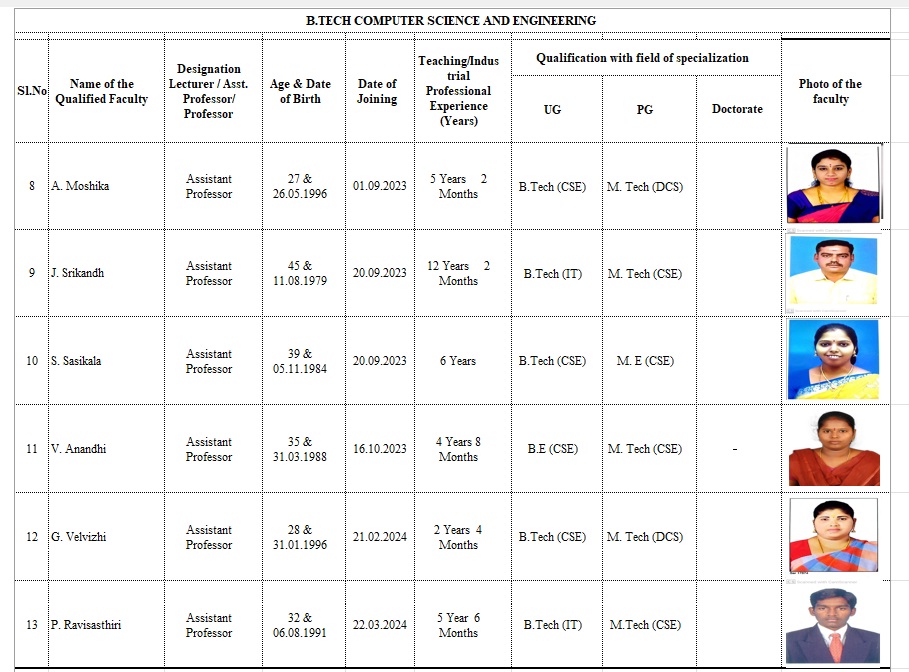To be a centre of excellence for nurturing competent computer professionals of high calibre and quality for catering to the ever-changing needs of the industry and society
MISSION
The Department of Computer Science & Engineering aims to develop innovative, competent, and ethically strong computer engineers, promote consultancy and research, and continuously upgrade technical expertise.
DEPARTMENT OF COMPUTER SCIENCE AND ENGINEERING
Programme Educational Objectives (PEOs)
- Apply the knowledge of Mathematics, Science and Engineering fundamentals to identify and solve Computer Science and Engineering problems.
- Use various software tools and technologies to solve problems related to academia, industry and society.
- Work with ethical and moral values in the multi-disciplinary teams and can communicate effectively among team members with continuous learning.
- Pursue higher studies and develop their career in software industry.
Programme Specific Objectives (PSOs)
The Graduates of B. Tech Computer Science and Engineering will be able to
- Apply mathematical and scientific skills in numerous areas of Computer Science and Engineering to design and develop software-based systems.
- Acquaint module knowledge on emerging trends of the modern era in Computer Science and Engineering.
- Promote novel applications that meet the needs of entrepreneur, environmental and social issues.
Programme Outcomes (POs)
- Engineering knowledge: Apply the knowledge of mathematics, science, engineering fundamentals, and an engineering specialization to the solution of complex engineering problems.
- Problem analysis: Identify, formulate, review research literature, and analyse complex engineering problems reaching substantiated conclusions using first principles of mathematics, natural sciences, and engineering sciences.
- Design/development of solutions: Design solutions for complex engineering problems and design system components or processes that meet the specified needs with appropriate consideration for the public health and safety, and the cultural, societal, and environmental considerations.
- Conduct investigations of complex problems: Use research-based knowledge and research methods including design of experiments, analysis and interpretation of data, and synthesis of the information to provide valid conclusions.
- Modern tool usage: Create, select, and apply appropriate techniques, resources, and modern engineering and IT tools including prediction and modeling to complex engineering activities with an understanding of the limitations.
- The engineer and society: Apply reasoning informed by the contextual knowledge to assess societal, health, safety, legal and cultural issues and the consequent responsibilities relevant to the professional engineering practice.
- Environment and sustainability: Understand the impact of the professional engineering solutions in societal and environmental contexts, and demonstrate the knowledge of, and need for sustainable development.
- Ethics: Apply ethical principles and commit to professional ethics and responsibilities and norms of the engineering practice.
- Individual and team work: Function effectively as an individual, and as a member or leader in diverse teams, and in multidisciplinary settings.
- Communication: Communicate effectively on complex engineering activities with the engineering community and with society at large, such as, being able to comprehend and write effective reports and design documentation, make effective presentations, and give and receive clear instructions.
- Project management and finance: Demonstrate knowledge and understanding of the engineering and management principles and apply these to one’s own work, as a member and leader in a team, to manage projects and in multidisciplinary environments.
- Life-long learning: Recognize the need for, and have the preparation and ability to engage in independent and life-long learning in the broadest context of technological change.
Faculty Profile



